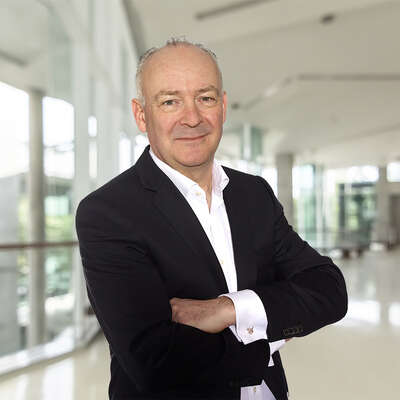Sometimes, the most important question is not 'how' but 'why'." Explore the subtle but profound differences between a 'good' and a 'great' question.

“That’s a very good question... let me think…”
There is a very subtle difference between a great question and a very good question. If, in the context of a podium discussion, a speaker uses the expression "that’s a GREAT question, thank you," it often carries a slightly patronising tone and usually indicates quite the opposite. Conversely, in the setting of a one-on-one coaching session, if the coachee says "that’s a very good question," it's typically because the coach has touched on a topic or theme that is elusive and unfathomable for the coachee.
Having had the incredible good fortune to successfully redefine myself twice in the context of my career, peers and business acquaintances at pivotal stages in their business lives often seek my advice on 'how' to do it. This, however, is neither a great nor a very good question because, in my view, for the purpose of achieving a similar goal, it is the wrong question. Initially, it is not the 'how' that matters but rather the 'why'. I encourage coachees to visualise the difference by imagining 'the how is in the head, the why is in the heart'. Why is the root of intrinsic motivation. The stronger the understanding of this core element of change, the higher the proportion of personal equity in any chosen course of action. That 'equity' is the fuel on which the 'how', i.e., the execution, later runs.
I have always been able to articulate retrospectively the 'why' in my career changes. Using clear messaging and proactive communication to get ahead of the 'did he jump or was he pushed' speculation always seemed like a sound approach to personal brand protection. In the present, however, determining the 'why' proved a much greater challenge, which I overcame by asking myself two 'very good' questions. Classifying these questions as 'very good' is not my doing; it is precisely the response I receive, nine times out of ten, when I pose the same questions in a coaching setting.
“That’s a very good question… ehhh… let me think”
As with many very good things, these are simple but effective.
Question 1: What is important to you?
Question 2: What are you good at?
Talking openly about feelings and abilities is not always easy and requires a moment of reflection. In the cacophony of conflicting emotions and self-fulfilling rationalisations, focusing on these questions, understanding yourself and articulating cogent responses will, however, generate the desired clarity.
I then like to reframe the questions by asking:
If you could do absolutely anything, what would that be?
Interestingly enough, there is usually no delay in the response to this question. Most people harbour a deep-rooted secret ambition, and by releasing the constraint of reality, we enter the realm of fantasy. Daring to dream has a tremendously positive impact on the mindset. The shift in energy when people begin to articulate what they 'really' want to do and why is literally electrifying. Stilted speech becomes fluent, defensive gestures become bold, evasive facial expressions become engaging, and a slouched posture becomes upright. In that moment of clarity, it dawns on most that they have the answer, right inside them. And so the question evolves from 'why' to 'why not'.
In his 1974 book 'The Inner Game of Tennis', author Timothy Gallwey used a simple equation to solve for 'why not':
Performance = Potential - Interference
In other words, what is interfering with achieving what you really want to do? Sometimes, just saying out loud what you think you can't do or what is preventing success lets you be clearer about what you can do and can even suppress that interference.
In summary, understanding what is important in the personal context, being aware of your abilities, and articulating what you really want to do in an unconstrained setting will help guide you to what’s right for you. I must emphasise, however, that the exercise only works with brutal honesty. It took me nearly 30 years, so don't worry too much about the timeline.
For example, one of the most significant career transitions in the TV sitcom "Friends" is Chandler Bing’s decision to leave his job in statistical analysis and data reconfiguration—a job he deeply dislikes—for a career in advertising. This change comes after a series of self-reflective moments and conversations with his friends about what truly makes him happy and what he’s passionate about. Chandler's journey can be a powerful example of reassessing one’s career path based on intrinsic interests rather than sticking with the familiar or secure path.
Remember, it’s better late than never.




